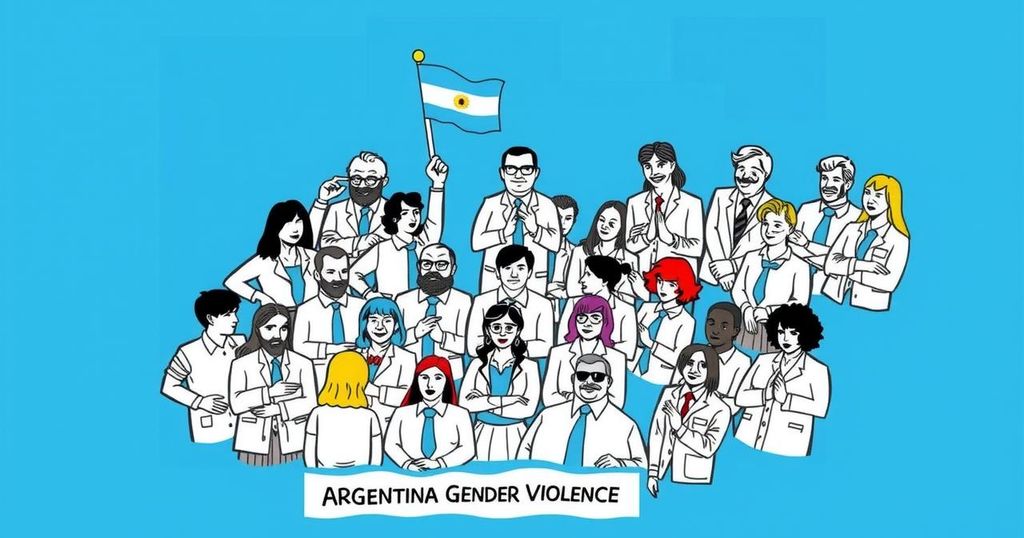Argentina has unexpectedly voted against a U.N. resolution on gender violence, becoming the only nation to do so, marking a significant shift in its foreign policy under President Javier Milei. This controversial decision has sparked widespread criticism and reflects Milei’s alignment with extreme right-wing positions, distancing Argentina from previously embraced international norms and raising concerns over the future of social progress.
In a surprising move, Argentina, under President Javier Milei, became the only nation to vote against a United Nations resolution addressing violence against women and girls. This decision, which stunned many observers given Argentina’s historically progressive stance on gender issues, drew sharp criticism from various political factions within the country. President Milei, who has initiated extreme changes in Argentina’s foreign policy, is now aligning more closely with conservative ideologies, distancing the nation from traditional allies and international norms. Milei’s administration has already created waves on the international scene by withdrawing from significant global agreements, including climate accords, reminiscent of former U.S. President Donald Trump’s controversial policies. The vote against the U.N. resolution echoes previous isolationist actions by Milei’s government, which has increasingly favored right-wing sentiments over established international standards relating to gender equality and cooperation. Critics from within the Argentine political landscape have urged a reconsideration of this radical foreign policy that could jeopardize the country’s international standing and the progress made in social issues. As protests mount over Milei’s approach to gender violence and social issues, both domestic and international observers speculate on the long-term implications of this abrupt shift. The administration’s rhetoric focuses on cultural battles deemed ‘imaginary’ by some politicians, which could leave Argentina at odds with its global partners, thus isolating it further in an increasingly interconnected world.
The article discusses Argentina’s recent decision to vote against a U.N. resolution aimed at combating violence against women and girls, a surprising stance for a nation regarded as a leader in social progress within Latin America. President Javier Milei, who has been in power for nearly a year, has instigated significant alterations in the country’s foreign policy, leaning towards extreme right-wing ideologies reminiscent of previous U.S. politics. This shift has drawn ire from both local and international communities who fear it undermines substantial advancements in human rights and social equity.
In summary, Argentina’s vote against the U.N. resolution on gender violence symbolizes a drastic departure from its traditionally progressive policies under President Javier Milei. This move, aligned with broader radical shifts in foreign policy, evokes considerable criticism from various political sectors. It raises pressing questions regarding the nation’s future direction in domestic and international spheres, potentially straining Argentina’s relationships and endangering hard-won social progress in the arena of gender equality.
Original Source: www.seattletimes.com






